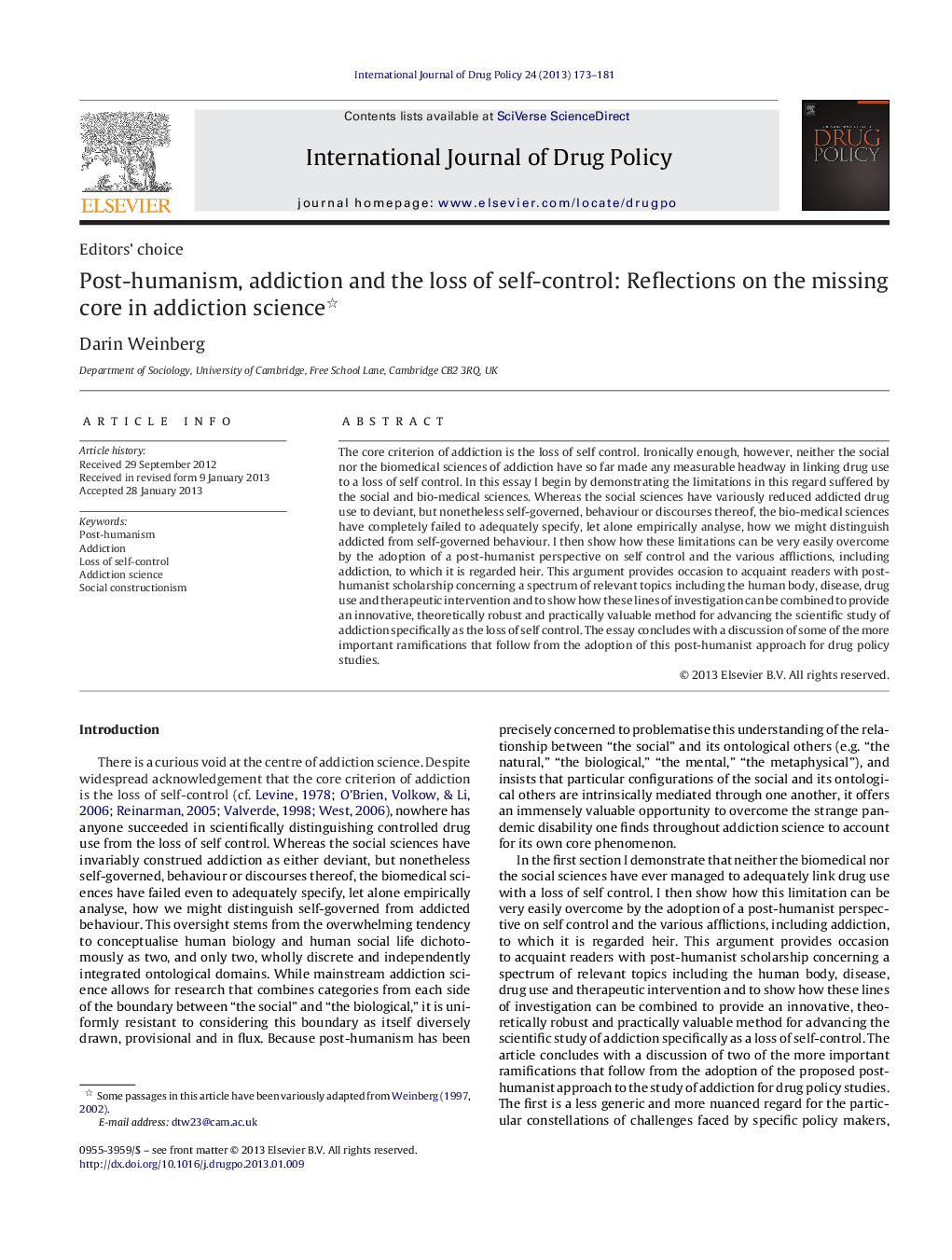| Article ID | Journal | Published Year | Pages | File Type |
|---|---|---|---|---|
| 7514292 | International Journal of Drug Policy | 2013 | 9 Pages |
Abstract
The core criterion of addiction is the loss of self control. Ironically enough, however, neither the social nor the biomedical sciences of addiction have so far made any measurable headway in linking drug use to a loss of self control. In this essay I begin by demonstrating the limitations in this regard suffered by the social and bio-medical sciences. Whereas the social sciences have variously reduced addicted drug use to deviant, but nonetheless self-governed, behaviour or discourses thereof, the bio-medical sciences have completely failed to adequately specify, let alone empirically analyse, how we might distinguish addicted from self-governed behaviour. I then show how these limitations can be very easily overcome by the adoption of a post-humanist perspective on self control and the various afflictions, including addiction, to which it is regarded heir. This argument provides occasion to acquaint readers with post-humanist scholarship concerning a spectrum of relevant topics including the human body, disease, drug use and therapeutic intervention and to show how these lines of investigation can be combined to provide an innovative, theoretically robust and practically valuable method for advancing the scientific study of addiction specifically as the loss of self control. The essay concludes with a discussion of some of the more important ramifications that follow from the adoption of this post-humanist approach for drug policy studies.
Related Topics
Health Sciences
Medicine and Dentistry
Psychiatry and Mental Health
Authors
Darin Weinberg,
